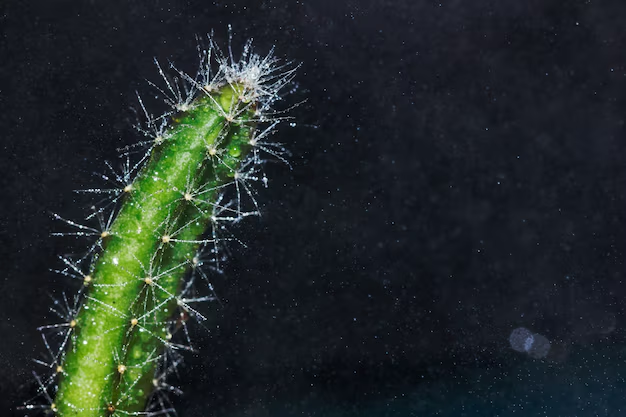Do Plants Develop Tumors? Understanding the Intricacies of Plant Growth Abnormalities
What if plants could get cancer? The mere thought might sound peculiar, given that plants don’t have the same kind of tissues and organs as animals. However, plants do experience growth abnormalities that are somewhat similar to cancer in animals. In this article, we'll delve into whether plants can get cancer, understand the mechanisms involved, and explore how these growths affect plant life.
Breaking Down the Concept of Cancer in Plants
To understand if plants can get cancer, we must first clarify what cancer is. Cancer in animals involves uncontrolled cell division that often leads to malignant tumors, invading nearby tissues, and sometimes spreading to distant body parts. While plants don't develop cancerous tumors in the same way animals do, they can form masses of unregulated growth that, in structure and cause, resemble animal tumors.
The Difference Between Animal and Plant Tissues
Animal Tissues:
- Composed of specialized cells forming complex structures like organs.
- Cancerous cells in animals invade and destroy healthy tissues.
Plant Tissues:
- Comprised of less specialized cells, such as undifferentiated meristem cells.
- The cell walls in plants are rigid, which helps prevent the spread of abnormal growths.
Tumors in Plants: A Closer Look
The abnormal growths in plants are often called galls or tumors. While these terms might sound alarming, plant tumors are generally not as life-threatening as human cancers.
Causes of Plant Tumors
Plant tumors are predominantly caused by:
- Pathogens: Bacteria, fungi, viruses, and nematodes can induce tumors. One well-known example is the crown gall disease, caused by the bacterium Agrobacterium tumefaciens. It introduces part of its DNA into the plant genome, causing the plant cells to proliferate uncontrollably.
- Environmental Stress: Physical injuries or contaminated soils can sometimes lead to unusual growths.
- Genetic Factors: Mutations in plant DNA can cause abnormal cell division.
How Plant Tumors Differ From Human Cancers
Understanding the difference between plant tumors and human cancers can help clarify why the former is less damaging.
Cell Structure and Defense Mechanisms
Rigidity of Plant Cells: The presence of a cell wall provides structural integrity and limits the spread of any abnormal growth.
Systemic Response: Plants possess a unique systemic acquired resistance (SAR), a whole-plant resistance response that is designed to prepare plants against future attacks.
Lack of Metastasis
Unlike animal cancers that can metastasize (spread), plant tumors remain localized. The rigid cell walls and lack of complex circulatory systems prevent the spread of abnormal cells.
Implications of Tumors in Agriculture and Horticulture
Economic and Aesthetic Concerns
- Impact on Crop Yield: Tumors like galls can stunt plant growth or affect the quality and quantity of produce.
- Ornamental Plants: Galls on ornamental plants might not be life-threatening but can affect their aesthetic value.
Management Practices
Growers often address plant tumors by:
- Cultural Practices: Regular crop rotation and sanitation to reduce the presence of pathogens.
- Biological Control: Introducing beneficial organisms to control pathogens.
- Genetic Resistance: Breeding and cultivating plant varieties that are resistant to specific pathogens.
Interesting Insights: Symbiosis and Plant Growth Promoters
While tumors often indicate a problem, some plant-microbe interactions are beneficial. Symbiotic relationships, such as those between legumes and nitrogen-fixing bacteria, promote healthy and rapid plant growth. Similarly, certain bacteria and fungi promote plant health and growth, highlighting the thin line between beneficial growth and detrimental tumors.
Symbiosis Benefits
- Nutrient Enhancement: Some bacteria make nutrients more available to plants.
- Disease Resistance: Certain microbes can bolster plant defenses against pathogens.
Future Research Directions
There's ongoing research to better understand plant cell division and the mechanisms that control growth. Insights from such studies can help:
- Develop bioengineered solutions to improve agricultural productivity.
- Enhance understanding of cellular processes that might have applications in medicine or biotechnology.
Genetic Engineering
With advancements in genetic engineering, scientists aim to modify plants to resist tumor-inducing pathogens without affecting their growth or yield. The introduction of genes that enable systemic resistance could be a game-changer in agricultural biotechnology.
Understanding the Implications for Ecosystems
While plant tumors might not be as devastating as cancers in animals, their presence in an ecosystem can have broad implications, influencing not only the plants themselves but also the organisms that rely on them.
Biodiversity Impact
- Tumor growths can change the physical shape and health of plants, potentially affecting the species that depend on them for food or habitat.
- Infected plants might limit the resources available to other plants and organisms, subtly shifting the ecological balance.
In Summary:
- Do Plants Get Cancer? Technically, no. However, they do develop growth abnormalities akin to animal tumors.
- Causes: Predominantly pathogenic as well as environmental and genetic factors.
- Impact and Management: Managed through agricultural practices, with implications for crop yield and ornamental plant aesthetics.
- Research: Ongoing efforts in genetic engineering offer hope for enhanced plant resistance.
Key Takeaways 🌱
- Localized Growth: Plant tumors remain localized due to structural and cellular differences.
- Pathogen-Induced: Often caused by bacteria like Agrobacterium tumefaciens.
- Management: Practices include using resistant plant varieties and maintaining field hygiene.
- Research Directions: Genetic engineering advances aim to develop resistant plant strains.
Understanding the dynamics of plant tumors provides insight into broader ecological balances and agricultural practices, allowing us to cultivate healthier plants and, in turn, ecosystems. By leveraging scientific advances, we can minimize the detrimental effects of plant tumors and optimize agricultural productivity and biodiversity.

Related Articles
- Are Breast Cancer Lumps Painful
- Are Chills a Sign Of Cancer
- Are Colon Spasms a Sign Of Cancer
- Are Lytic Lesions Always Cancer
- Are Polyps Cancer
- Can a Blood Test Detect Cancer
- Can a Ct Scan Detect Cancer
- Can a Dexa Scan Show Cancer
- Can a Gastric Emptying Scan Show Cancer
- Can a Lung Biopsy Cause Cancer To Spread
